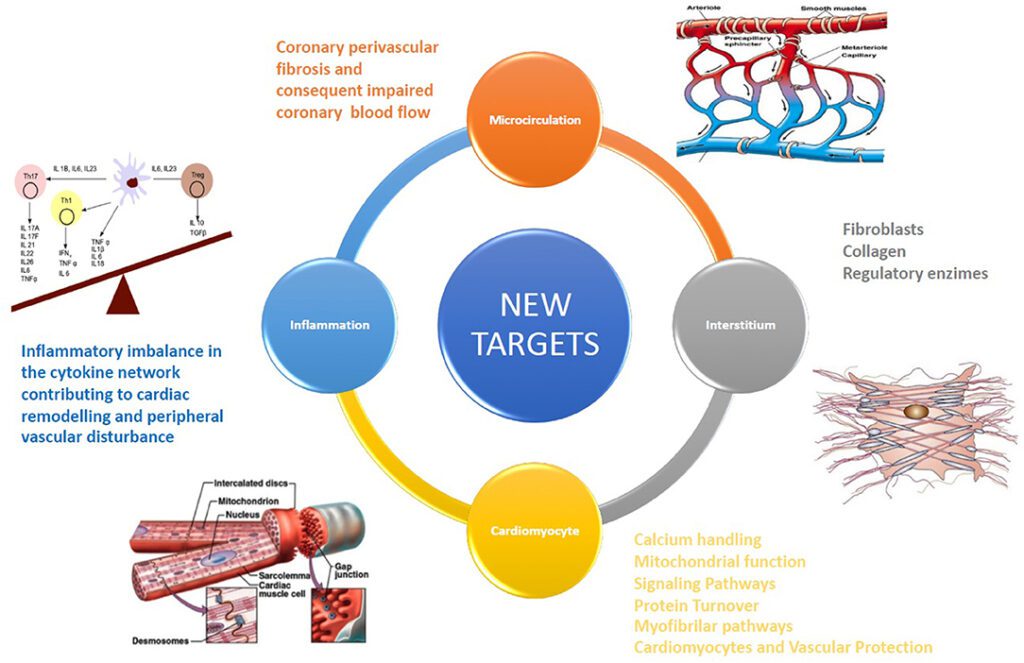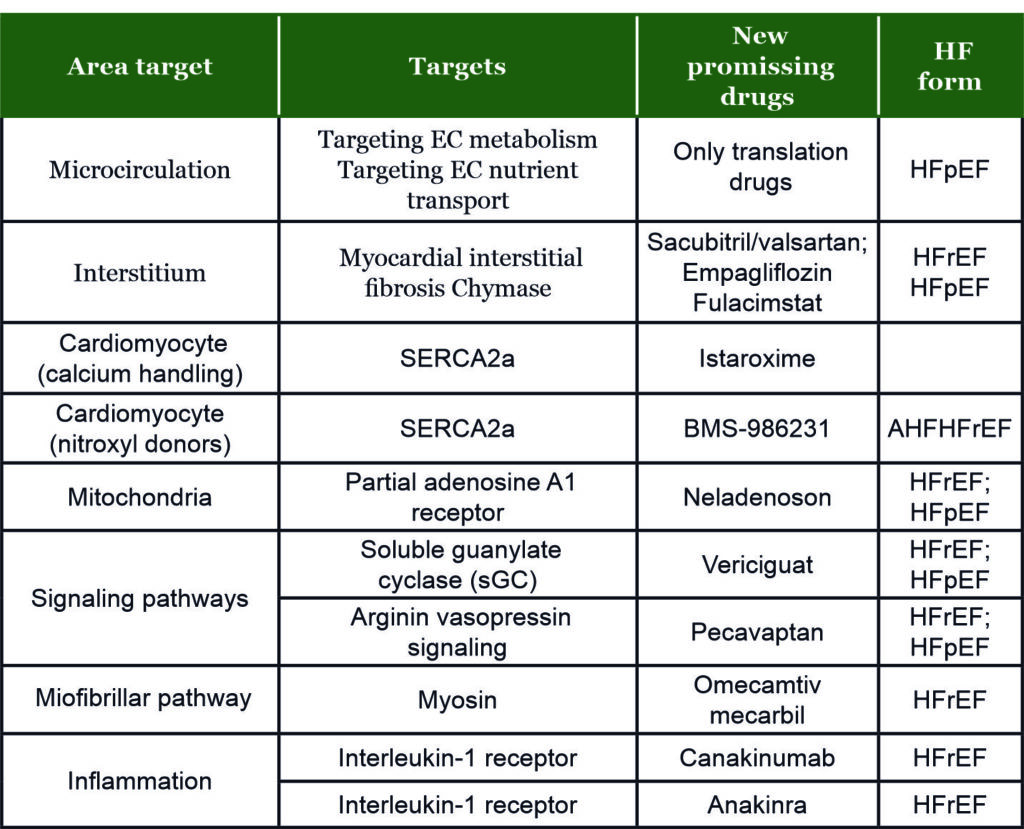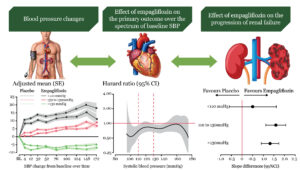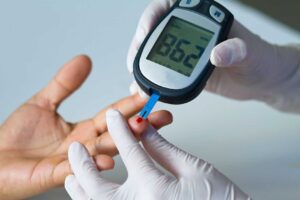Introduction:
Despite recent advances in chronic heart failure management (either pharmacological or non-pharmacological), the prognosis of heart failure (HF) patients remains poor. This poor prognosis emphasizes the need for developing novel pathways for testing new HF drugs, beyond neurohumoral and hemodynamic modulation approaches1 The development of new drugs for HF therapy must thus necessarily focus on novel approaches such as the direct effect on cardiomyocytes, coronary microcirculation, and myocardial interstitium. This review summarizes principal evidence on new possible pharmacological targets for the treatment of HF patients, mainly focusing on microcirculation, cardiomyocyte, and anti-inflammatory therapy.1
Future Perspectives:
Possible new HF drugs are given in table -1, above all for HFpEF, might target myocytes, mitochondria, microvascular circulation, and interstitium. Further studies are needed to transfer evidence derived from pre-clinical evidence to real-life with new possible therapeutic approaches aimed at new therapeutic targets in HF1
Table 1 – New possible pharmacological targets and promising drugs for the treatment of HF patients.







